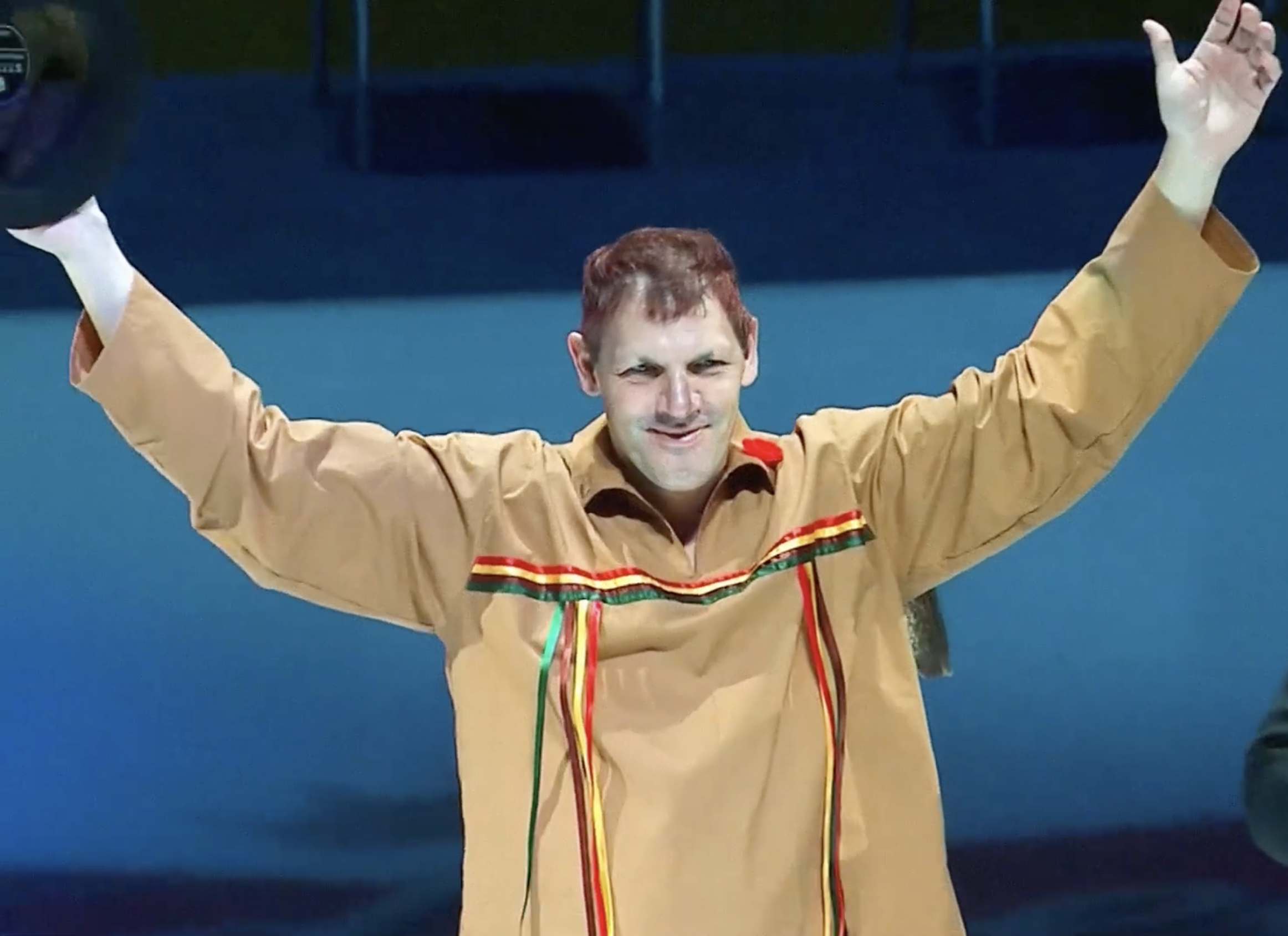After generations of stolen kids, ‘powerful changes’ to ‘B.C.’ law set to return child welfare jurisdiction
Amendments to provincial child welfare legislation, introduced on Wednesday, were celebrated by Indigenous leaders as an important first step to righting wrongs of the past

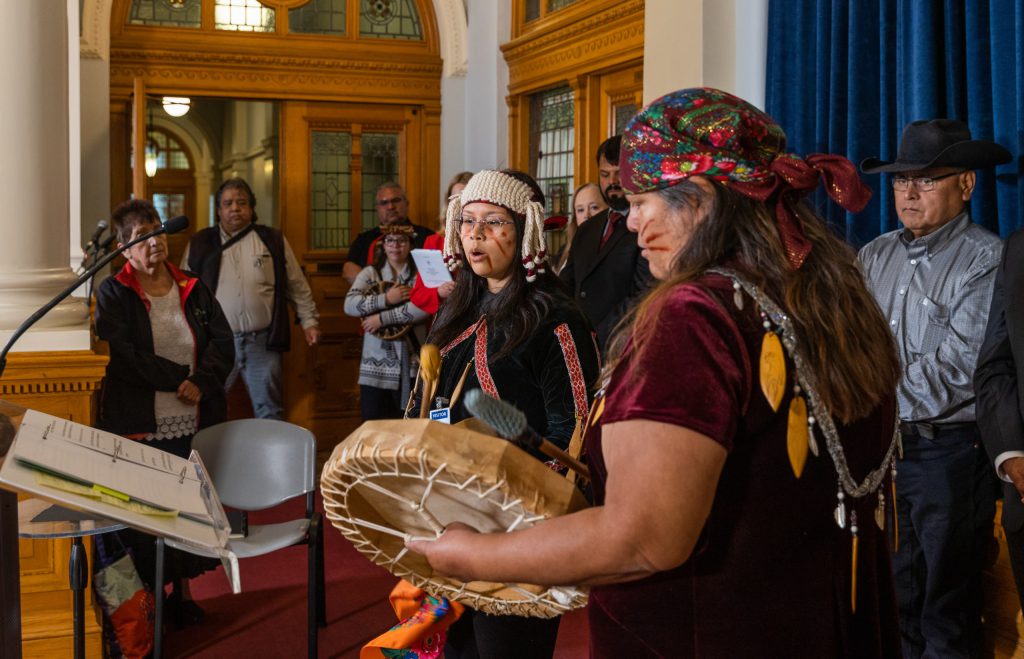
The “B.C.” legislature was heavy with horrific memories of child apprehension as Indigenous and provincial leaders gathered to hear the first reading of Bill 38: Indigenous Self-Government in Child and Family Services Amendment Act.
The Bill, tabled on Wednesday, proposes long-awaited changes to child welfare laws in the province as outlined in the Child, Family and Community Service Act (CFCSA).
While the legislation must still go through several stages — including second and third readings as well as debate — it was celebrated as a first step to disrupt the ongoing legacy of Indigenous children being taken from their families by colonial forces.
Indigenous leaders expressed their joy at the proposed changes introduced, which include giving child-welfare jurisdiction to Indigenous governing bodies and consent-based decision making by communities when it comes to adoptions. The amendments would ultimately give Indigenous communities more control over what happens to their own children.
On Oct. 26, Elders, chiefs, matriarchs, youth and children settled into the seats of the legislature, while Ancestors and the spirits of the children who have been harmed by the child “welfare” system were welcomed into the space.
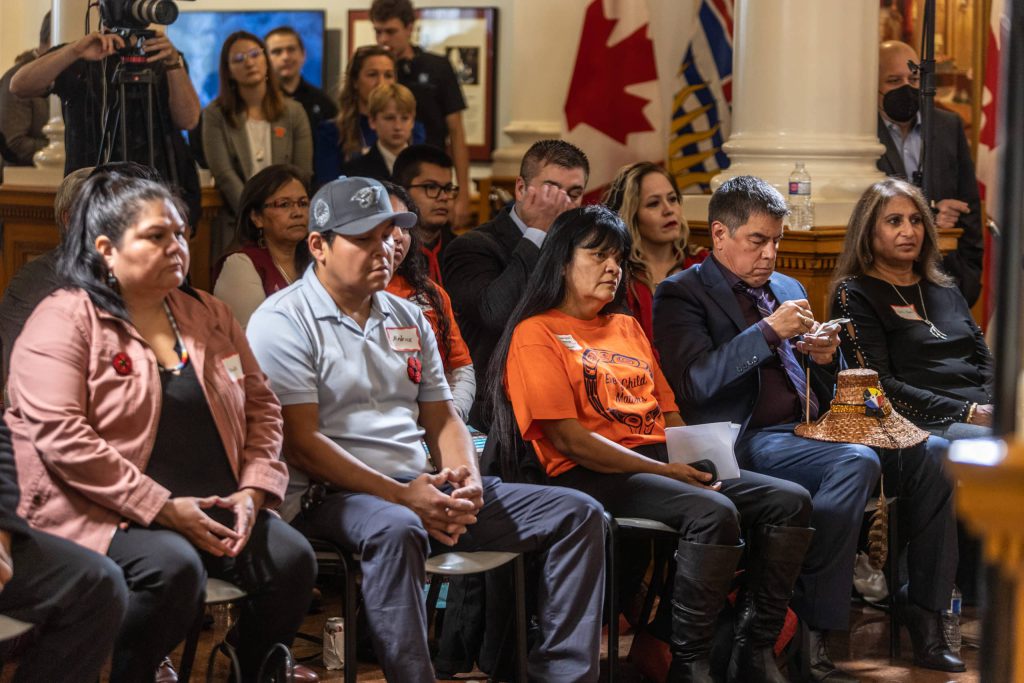
Elder Shirley Alphonse of the T’Sou-ke Nation recited a prayer over the sounds of quiet yet thunderous drumming, before Indigenous leaders took to the floor of the legislature to speak.
“These are powerful changes,” began Kukpi7 Judy Wilson, who is the secretary treasurer of the Union of BC Indian Chiefs (UBCIC).
“Our families were categorized as bad parents. Categorized by the Ministry of Children and Family Development (MCFD), and other shaming and negative words, as they interacted with the child welfare system. That ends today.”
Wilson added that while the fallout from the harms that have been done will inevitably continue, these changes mean that “we can see the light at the end of the tunnel.” She said she hopes that the province will also apologize in a meaningful way to Indigenous families.
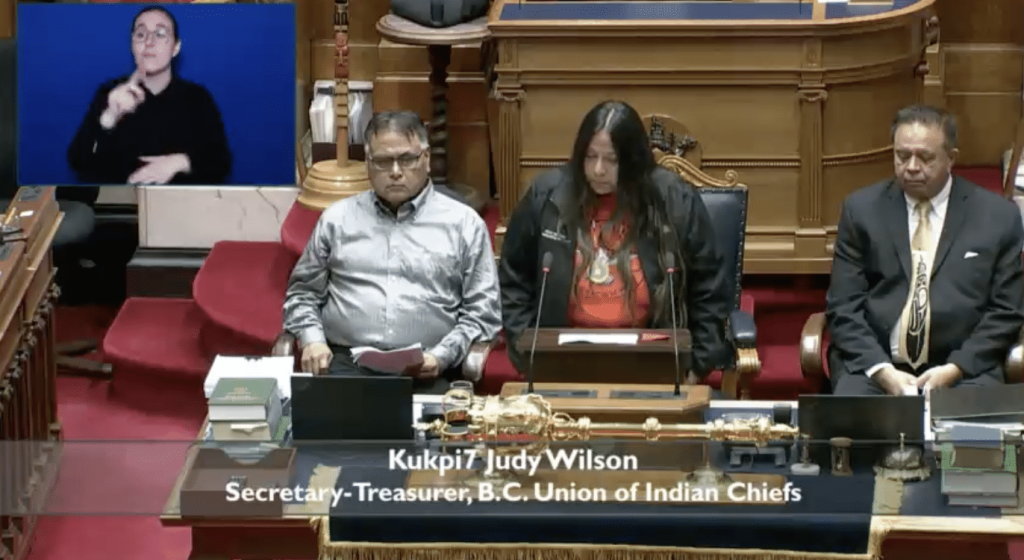
Premier John Horgan responded in his speech that it’s been a journey to recognize, respect and uphold Indigenous jurisdiction over children and family services.
“We want to see joy not turn to fear because of policies of the past,” he said. “Through residential schools, through the Sixties Scoop and through the end, thankfully, of birth alerts — another scandalous part of our collective history.”
The controversial practice of birth alerts — wherein social workers can flag an expectant parent to a hospital before their child is even delivered — was only banned in the province in 2019, months after being deemed “illegal and unconstitutional” by government lawyers.
The amendments to the CFCSA come as the result of consultations with Indigenous leaders and organizations. An overhaul of the “B.C.” child welfare system has been called for many times by families and advocacy groups.
Also in 2019, the legal non-profit West Coast LEAF released a comprehensive report that outlined the province’s failures when it comes to Indigenous child welfare and the need for more community-driven responses.
“Self-determination must be at the heart of making the child welfare system work for Indigenous families,” said Elba Bendo, LEAF’s director of law reform, at the time of the report’s release.
“Communities and nations must have full jurisdiction over child welfare for all their children, including those living off reserves, and they must be provided with resources to provide the same level of services to their children as are offered to non-Indigenous children.”
Indigenous leaders who spoke at the legislature Wednesday also reminded everyone in attendance that the removal of Indigenous children from their communities must come to an immediate end.
The apprehensions have been such a problem that the “Millennium Scoop” has been coined as a more recent equivalent of the Sixties Scoop. Cindy Blackstock of the First Nations Child & Family Caring Society has previously pointed out that there are three times as many Indigenous children in government “care” today than there were at the height of residential “schools.”
“The forced removal of children has been a deep source of pain and injustice,” said Jerry Jack, who is the chief of Mowachaht/Muchalaht First Nation and represented the BC Assembly of First Nations as part of its board of directors.
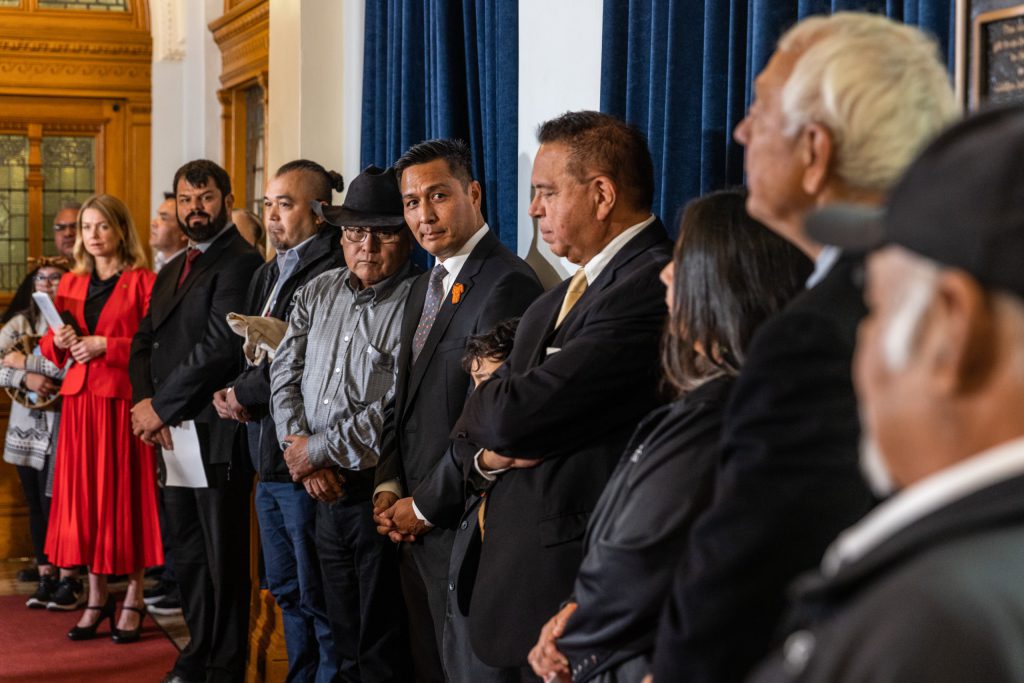
According to MCFD, Indigenous children youth make up less than 10 per cent of the total population in the province but represent 68 per cent children in the government’s “care.”
Adam Olsen — who is from Tsartlip First Nation and a Member of the Legislative Assembly (MLA) for Saanich North and the Islands — said it’s always been a priority for Indigenous families to bring their children home and he is glad to see that finally getting government recognition.
“There are many of our relatives who are displaced from their homes, many of our relatives who are not with us today because the child welfare system failed them,” he said.
“I hold in my heart today, as I speak, those people. I ask the members of this assembly to keep them in their thoughts as we debate this legislation and hold on to the hope that the changes that we celebrate today mean that our relatives no longer experience displacement and disconnection from the places that they belong to.”
Author
Latest Stories
-
‘Bring her home’: How Buffalo Woman was identified as Ashlee Shingoose
The Anishininew mother as been missing since 2022 — now, her family is one step closer to bringing her home as the Province of Manitoba vows to search for her
-
Book remembers ‘fighting spirit’ of Gino Odjick, hockey’s ‘Algonquin Assassin’
Biography of late Kitigan Zibi Anishinabeg left winger explores Odjick’s legacy as enforcer in the rink — and Youth role model off the ice
-
St. Augustine’s survivor hopes for closure after evidence of 81 unmarked graves released
50 years after the residential ‘school’ closed, shíshálh Nation announces evidence of many burial sites. A Tla’amin Elder wonders how many more children died



